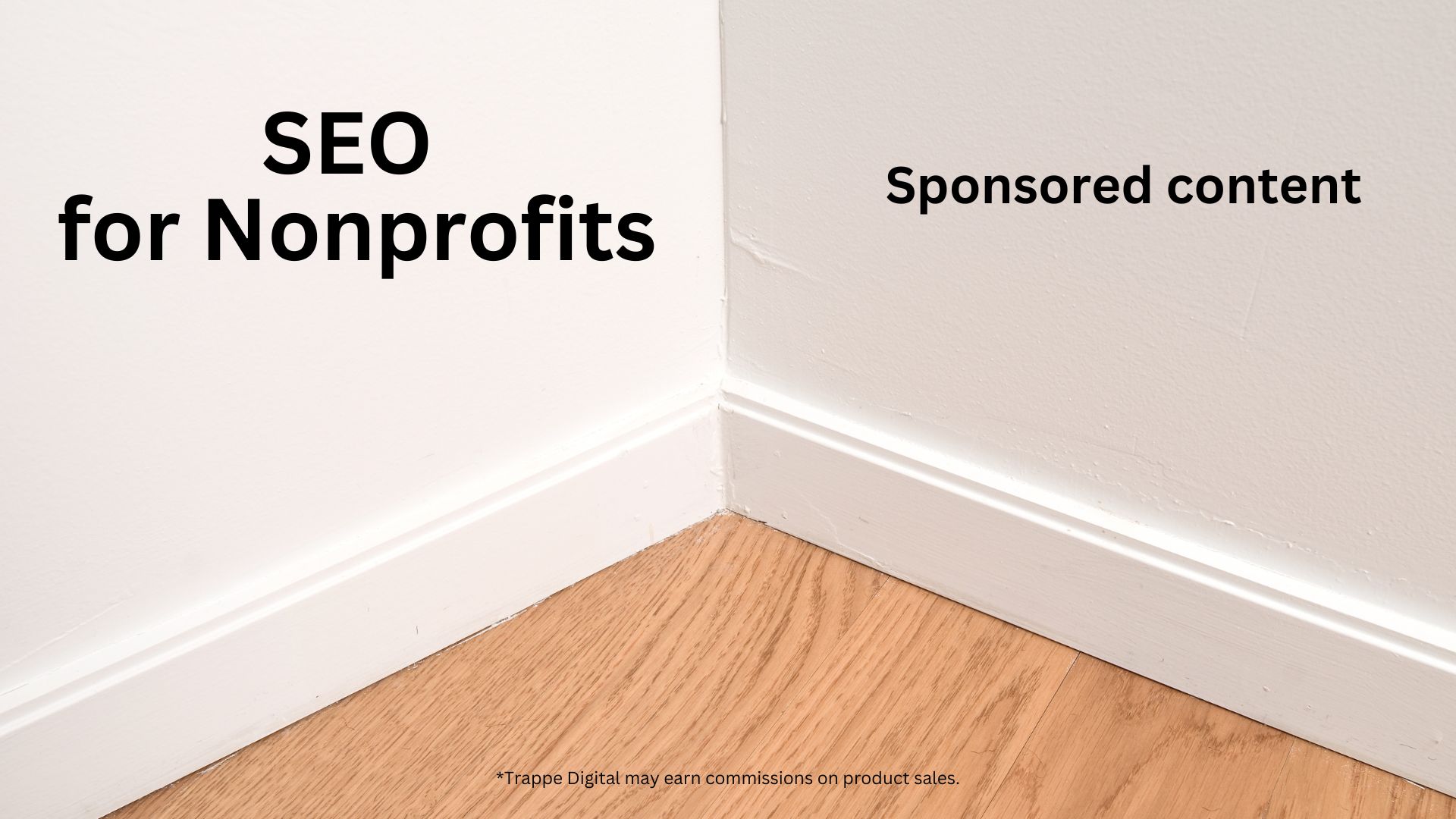Trappe Digital LLC may earn commission from product clicks and purchases. Rest assured, opinions are mine or of the article’s author.
Are you a nonprofit organization looking for ways to optimize your online presence and reach more people? If so, then an effective SEO strategy is essential. Developing one can take time, resources, and effort, but it will help get your mission out in the world in the long run. So how do you build a strategy that works best for your nonprofit organization’s goals? From creating engaging content to taking advantage of link-building, this article will cover all the essentials of crafting an optimized SEO strategy specifically designed for nonprofits!
3 Reasons Why Nonprofits Need a Strong SEO Strategy
In a nutshell, nonprofit organizations need an effective SEO strategy to maximize their success. Such a strategy helps to make sure your website, blog posts, and other content are seen by potential donors and recruits who are searching for important keywords. Thus, a strong SEO strategy can increase website visibility in search engine results. This, in turn, broadens the reach of your content and drives more website visitors leading to greater donations and volunteer support
Additionally, efficient SEO techniques help establish trust and reliability with potential supporters as up-to-date, relevant content shows that you’re staying active and responsive in the field. To sum it up, an effective SEO plan is essential to helping nonprofit organizations engage with current members while also expanding their outreach efforts through digital media.
Building a Comprehensive SEO Strategy For Your Nonprofit
Developing an appropriate and effective SEO strategy for your nonprofit can be daunting. Here, however, are a few principles that should be followed for successful outreach.
Principle #1: Consistent keyword research
When it comes to optimizing content for search engines, keyword research is essential. This process involves determining the most relevant terms and phrases related to your organization’s mission that people are likely to be searching for online.
When performing keyword research, it is important to use a good keyword difficulty check tool that shows the major metrics such as difficulty and volume. If a keyword has high difficulty but low search volume, it could be practically useless in terms of boosting a company’s search engine rankings.
Principle #2: Engaging content
When generating content, it is important to keep in mind that people want to feel as though they are getting something out of a donation or connection with the nonprofit. Investing time into crafting thoughtful and articulate content can be extremely beneficial because these pieces offer an opportunity to engage potential and current supporters.
Plus, creative, well-crafted content will help the organization’s website appear higher in relevant search engine results. Consequently, this contributes significantly toward increasing awareness of your nonprofit’s mission, programs, products, and services.
Elevate your engagement game with video converter. Turn ordinary content into extraordinary experiences, strengthening your connection with both existing and potential supporters.
Principle #3: Effective link-building
One more principle worth considering is the practice of taking advantage of backlinks. Backlinks refer to any hyperlink on another website that leads directly to your organization. By building up these strategic backlinks via content marketplaces and influencers, your organization can dramatically increase its web exposure and reach more supporters.
Additionally, having other organizations link to yours will strengthen the credibility of your site and help visitors trust your nonprofit cause even further. Consider focusing resources on the development of meaningful web partnerships and relationships which in turn will pay off in terms of increased visibility online. And remember — your link profile grows, you will need to use a strong backlink analysis tool to keep it healthy.
Principle #4: Relevant themes
Another critical factor of a successful SEO strategy is to select topics that are both relevant and timely. Content that is interesting and speaks to pressing issues in the public arena can help make your organization’s website rise within search engine rankings and reach the intended audience.
The use of effective rank tracker software can help to identify pertinent topics and draw more eyes to the website, as Internet users seek out the latest news or trends related to the mission of your nonprofit. In this manner, it is important to keep up-to-date with current events so that your website content can remain fresh and engaging.
Principles #5: Mobile optimization
Too often, organizations overlook the importance of optimizing their content for mobile devices, but today this is essential due to the ubiquity of smartphones and tablets. Ensuring that the content on your nonprofit’s website is optimized for mobile devices allows visitors to easily access information and engage with it.
Furthermore, tailoring content for different-sized screens makes it easier for search engines to crawl and index websites, ultimately making them more visible on SERPs. In this manner, when designing an effective SEO strategy for your nonprofit organization, don’t forget about the aspect of mobile optimization.
Wrapping Up
While building a comprehensive SEO strategy may seem daunting at first, it is ultimately worth the time investment for any nonprofit organization. By following the steps we’ve outlined in this article, you can be sure your website is well on its way to achieving a high ranking in search engine results. In addition to helping you attract more visitors, a strong SEO presence will also give your organization credibility and build trust with potential donors.


